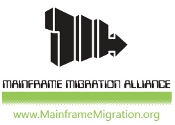Language Conversions
Language Conversion Advantages
 Larger pool of available programmers
Larger pool of available programmers
Experienced “legacy” developers are either retiring from the workforce or switching to work in newer technology fields to remain competitive. Educational institutions are no longer focusing on “legacy” technologies. As a result, the pool of available personnel to support many older systems continues to dwindle increasing the risk of “the one programmer who knows it, getting hit by a bus.” Converting your legacy language code to more widely used industry standard languages provides the option of choosing from a larger pool of programming talent.
 Reduced cost through language consolidation
Reduced cost through language consolidation
Applications written in different programming languages can require licensing fees for each language compiler and/or runtime environment. By consolidating languages, businesses can shed some or all of their language licensing expenses.
 Greater portability to other platforms (System Migrations)
Greater portability to other platforms (System Migrations)
Some languages are heavily integrated with a particular operating system and/or hardware. Industry standard languages run on a wide variety of platforms providing the flexibility of moving portions or all of an application to another platform with greatly reduced effort.
 Coding style consistency
Coding style consistency
Automated code conversions result in consistent coding styles in terms of code formatting and syntax, thereby reducing maintenance costs.
 Specialized code modifications
Specialized code modifications
In addition to converting to a new language, specialized coding modifications can be implemented as code is converted. Datatek can tailor a converter for your business requirements. Global modifications are made in a consistent and accurate manner.
 Minimal/No user community retraining
Minimal/No user community retraining
Converting code to a newer language does not change its logic. Applications will essentially look and function the same as they did before. (If the system platform is changing, businesses tend to see the benefit of major performance gains.) The cost of massive/company-wide retraining efforts is not required.
 Avoid pitfalls of complete software replacement
Avoid pitfalls of complete software replacement
The industry is full of horror stories of companies attempting to replace their applications with off the shelf software packages. Migrations to these packages have proven to be extremely costly as it is determined during the project that the package does not support all the functionality the business’s original application contained. Costs increase as more customizations are required and more hardware is required to “fix” the performance problems as a system is tested with real users. Project timelines drag out, businesses start accepting they may have to live without prior functionality because they need to go live, and staff needs to be retrained. Businesses have expended large amounts of capital and manpower refining their applications to meet their needs over the years. Converting to another language allows your business to retain that investment while gaining the benefits of a newer language/platform.
Next Step
View our Resources, including case studies, white papers and extensive FAQ
Success Stories
Fortune 1000 Financial Services
A Fortune 1000 financial software and data center services provider wanted to migrate from their legacy platform to an Open System environment. Their software suite was written in a combination of PL/I, Assembler ...
Read more about this and other successes »
More Information
- Conversion Overview
- Conversion Process
- Conversion Advantages
- Resources & White Papers
- Frequently Asked Questions
- Success Stories
Source Languages
Strategic Partners




How Can We Make This Website Better?
If you’ve discovered a mistake, an ambiguity, or that some important information is missing from this website, please let us know.
© Copyright Datatek, Inc. 1994-2024, All rights reserved. All trademarks belong to their respective owners.
